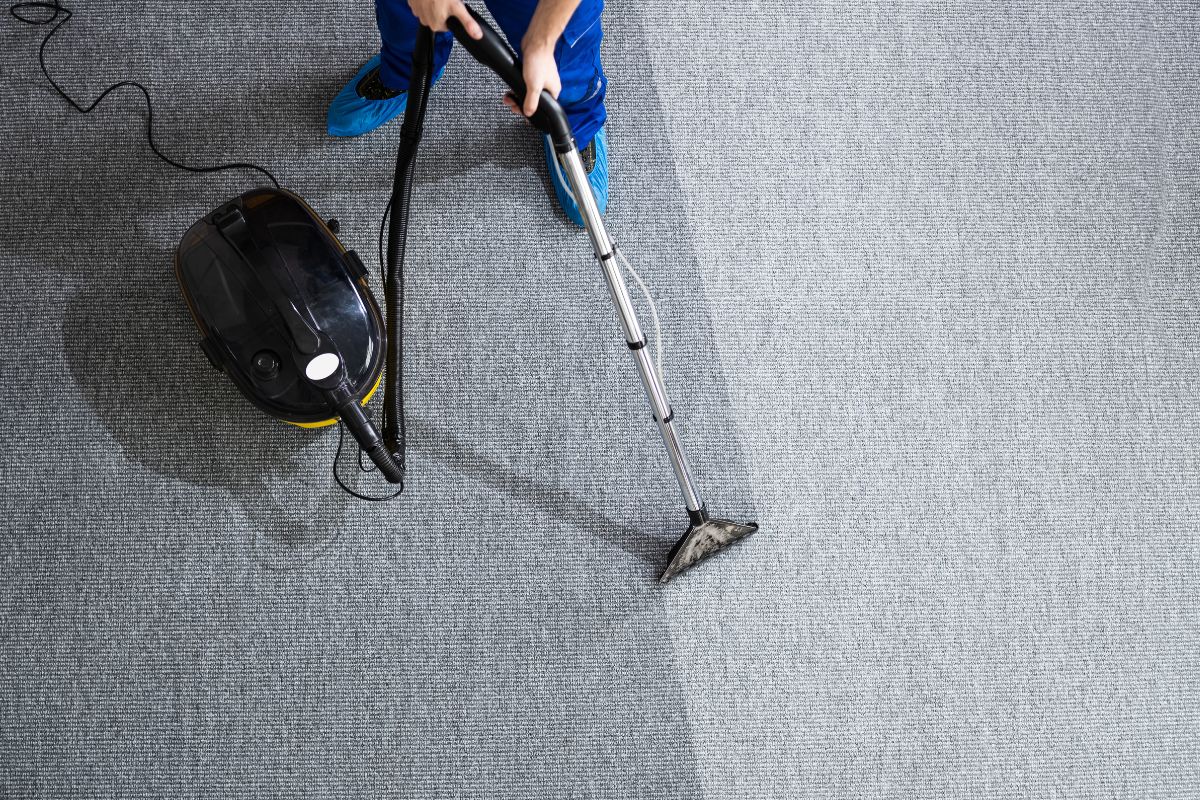
Both landlords and tenants have numerous inquiries about the entire leasing process. Still, one topic that generates even more questions is what happens when a renter vacates. So naturally, everyone wants to be on the same page regarding which spaces need cleaning and which ones you can leave undisturbed.
However, dealing with unclean tenants can be a significant issue for landlords. Infestations of pests or mold brought on by puddles of food, water, or dirt can reduce the value of a property. Certain towns and states permit the landlord to charge for cleaning if a rental is severely dirty or uninhabitable. In this article, we’ll discuss if a landlord can place a professional cleaning fee in the lease agreement. Let’s go!
Table of Contents
Can Landlords Place a Professional Cleaning Fee in the Lease Agreement?
It would be illegal to take a deposit for a deep clean at the beginning of the lease because some jurisdictions’ laws prohibit extra deposits of this kind. The addition of an end-of-lease cleaning fee might fit into the same category. Homeowners must exercise prudence.
State law forbids landlords from renting out their properties using unfair or unethical means. Suppose you intend to charge a cleaning fee at the end of the tenancy. In that case, you must disclose this information in the advertisements you place looking for renters. It must be clarified once more at the lease signing, where you must also mention it, and once more when you submit the final bill. You should hire a responsible property manager in Baltimore to ensure tenants maintain their rental homes.
All lease agreements require the property to be returned to the homeowners in the same condition as when it was leased to the tenants.
Most of them, however, do not have a condition requiring expert cleaning at the end of the tenancy. If this occurs, the renter will generally be responsible for paying the preferred contractor recommended by the landlord or agent.
Professional cleaning services range in price from $200 to $400 on average, though prices vary from company to company.
Depending on the provider, this may or may not involve deep cleaning kitchen cupboards, appliances, washing windows, etc. They typically come as optional, fee-based services. It’s worth mentioning that steam cleaning carpets is a particular service that may incur additional fees based on the size and state of the carpet.
The tenant is responsible for keeping the property clean, even if the landlord or lease agreement says it does not need professional cleaning. However, landlords can ask the renter to engage and pay for a professional cleaning service if they are dissatisfied with the results of a do-it-yourself cleaning.
Reasonable wear and tear
During an inspection, if an owner cannot identify any issues with the degree of cleanliness, there is a reasonable probability that they will carefully check for minor damages. This might include even the tiniest stains on a wall that might have existed before the renter moved there. In any case, the landlord can charge the renter for fixing any damage discovered if the tenant cannot demonstrate that the harm existed before or when they began inhabiting the property.
In light of this, you should also know that the tenant is not responsible for the harm brought on by normal wear and tear from utilizing the property. This is called “normal wear and tear,” which develops over time or through continuous use.
But if you intentionally or unintentionally cause damage to the property, you are responsible for both the cost of the repairs and the necessary repairs. Naturally, there are varying opinions among tenants, agents, and landlords on what constitutes damage or normal wear and tear; unfortunately, this often leads to a disagreement over “unfair” claims.
Nonetheless, you can consider any property depreciation over time as reasonable wear and tear if a tenant has performed minimal care and upkeep. For instance, if a wall fracture appears without any effect from the tenant, the tenant is not responsible. On the other hand, holes or cracks made by hammering nails or mounting fixtures to the wall are regarded as damage.
Tenant’s Responsibility When Cleaning a Rental
Traditionally, a tenant’s cleaning duties include maintaining the home’s cleanliness and habitability.
These can include routine maintenance chores like cleaning the unit regularly. For instance, when it’s necessary, change the filters and lightbulbs. Some landlords may even provide their tenants with rental inspection checklists as a guide to what to watch out for or maintain.
Also, the tenant must inform the landlord of any problems and maintain contact with them.
Tenant obligations include returning the rental property in the same state as when they arrived. Of course, it’s not on you to make the property better. To avoid being charged for damage that occurred before your arrival, make sure you retain copies of the inventory reports.
This is one of the reasons many advise landlords and tenants to have photographs taken of a property’s condition when they first move in, so there is no doubt as to what shape it needs to return to.
Conclusion
The best option is to select a tenant who will maintain your property as if it were their own, even if a landlord may charge a tenant for cleaning services.
Investigate prospective tenants online, and ask the tenant’s former landlord how well they maintained the home. It would help if you left as little as possible to the tenant’s interpretation of cleanliness. To avoid problems when and if the renter decides to move out, it’s a good idea to utilize a cleaning supplement or a special cleaning provision that specifies the tenant’s obligation to maintain the property clean.
We’re a specialist link-building agency that builds incredible backlinks to improve your search engine rankings.



